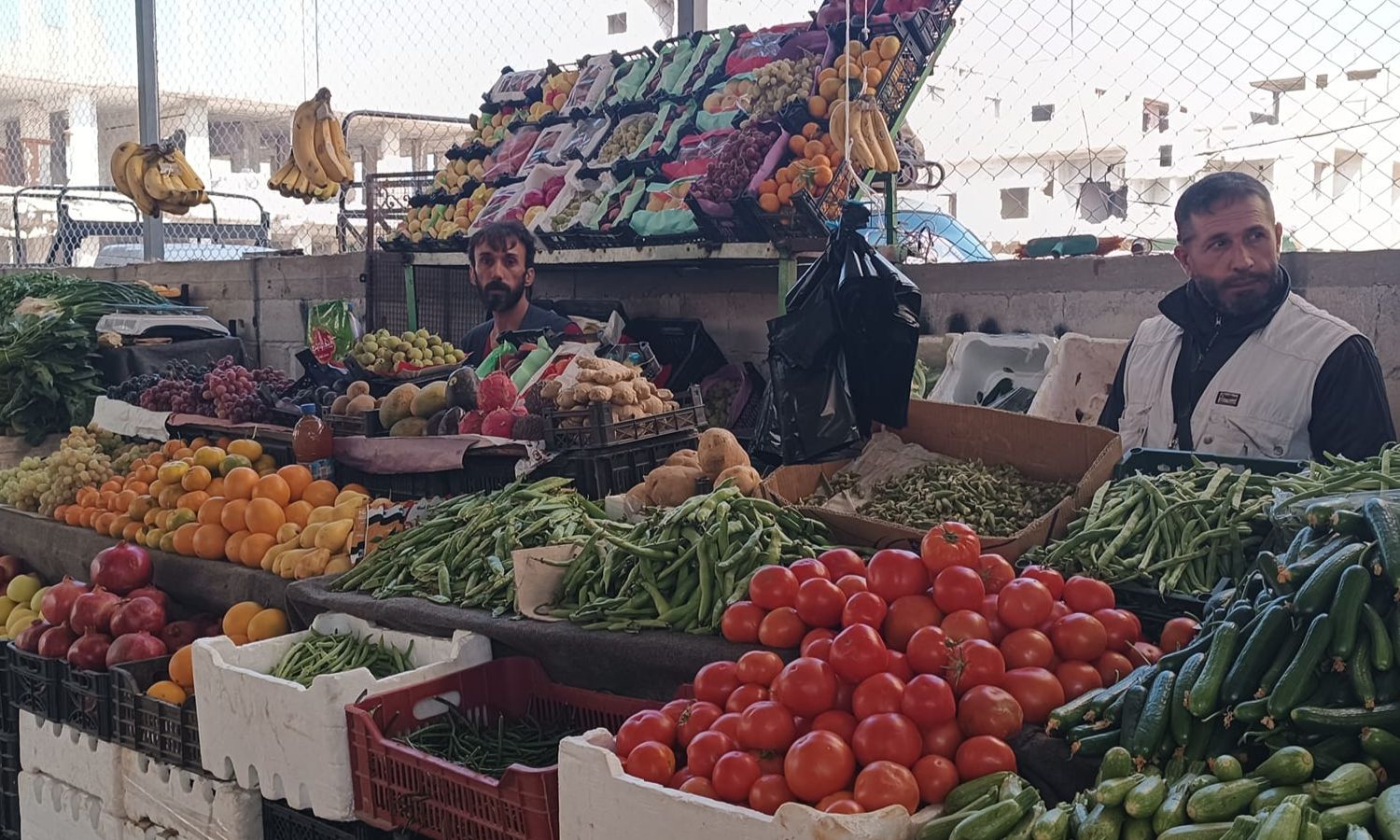



Daraa – Halim Muhammad
After the vegetable market returned to its main location in Daraa city, Ayham, a resident of the Daraa refugee camp, buys his household vegetable needs every morning at a lower price compared to the prices in the grocery stores in the market.
The reopening of the market in its previous location is significant for residents of the area, while it has added financial costs for residents of distant neighborhoods.
After more than 12 years of interruption, the Daraa City Council reopened the vegetable market at Busrа Square.
The market had suffered damage due to its location in an area of confrontations between regime government forces and Free Syrian Army factions between 2012 and 2018, and the market was moved to the al-Kashef neighborhood, far from military confrontations, as a temporary solution.
The vegetable market neighbors the Daraa refugee camp, the al-Sad road neighborhood, and Busrа Square, benefiting residents of these neighborhoods by allowing them to buy vegetables at prices close to wholesale prices in al-Hal popular markets.
The vegetable market is adjacent to the al-Hal market in Daraa city, which reduces transportation costs, thus reflecting in lower vegetable prices.
Ayham (who supports a family of five) told Enab Baladi that the price of one kilogram of tomatoes in the market is 2000 Syrian pounds ($0.13), while it reaches 3500 pounds at vegetable vendors inside the camp, and the price of one kilogram of potatoes is 7000 pounds, sold for 9000 pounds ($0.60) in vegetable shops.
Ayham (who lives in the Daraa camp) added that the abundance of stalls inside the market drives competition and lowers prices to attract customers.
Before the market opened, grocery vendors controlled the prices, and the al-Kashef market was far from the camp, requiring Ayham to take a taxi for no less than 20,000 pounds ($1.30) to get there.
The market consists of stalls separated by iron barriers, covered and equipped with sewage networks, roads, and lighting.
Daraa City Council President Amin al-Omari told the official Syrian News Agency (SANA) that the maintenance works carried out by the council included preparing service facilities and rehabilitating infrastructure to facilitate buying and selling operations.
This step comes within the framework of revitalizing commercial activity in the market area, aiming to restore commercial life to the heart of the city, according to al-Omari.
The market is operated by an investor, with each stall owner paying $250 annually to the investor, as reported by Enab Baladi‘s correspondent.
Residents of the al-Kashef, al-Sabeel, and al-Qusoor neighborhoods, which are residential areas in Daraa city, had become accustomed to buying vegetables from the temporary al-Kashef market in recent years, which reduced their purchasing costs.
Imane, a resident of al-Kashef, stated that the distance between the market in its new location and the residential neighborhoods has become far, representing a cost to reach it.
Imane added to Enab Baladi, as a housewife supporting a family of four, that the market’s minibusses service had been suspended for years, and if it were to resume, it would ease taxi fares for residents of these neighborhoods; furthermore, walking is exhausting since the distance between some neighborhoods and the market exceeds three kilometers.
Imane used to buy vegetables most days of the week from the al-Kashef market, noting that she has noticed a price difference between buying from it and buying from groceries.
She added that the market contains all types of vegetables and fruits at competitive prices, while the grocery store may not supply all she requests.
if you think the article contain wrong information or you have additional details Send Correction